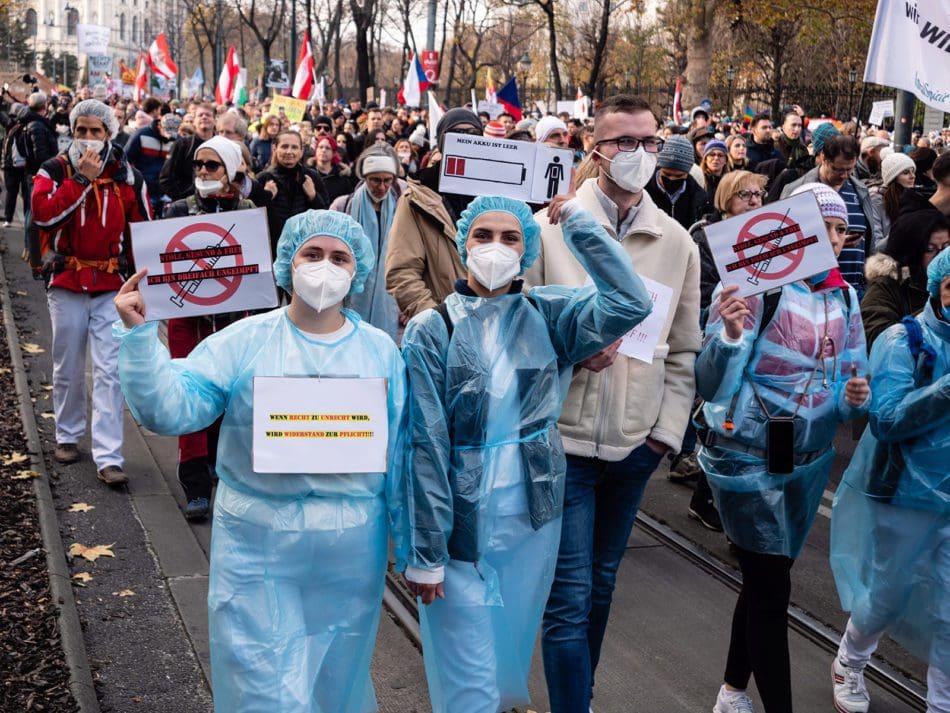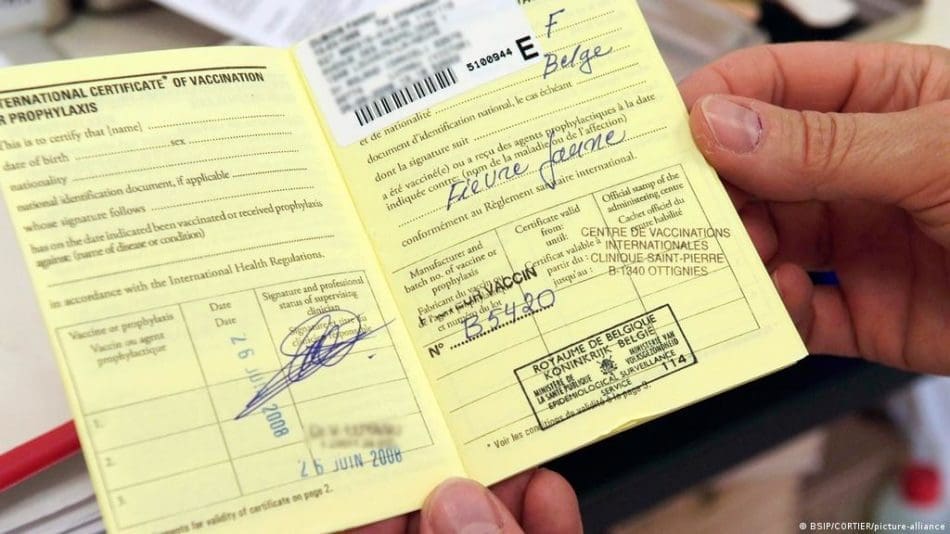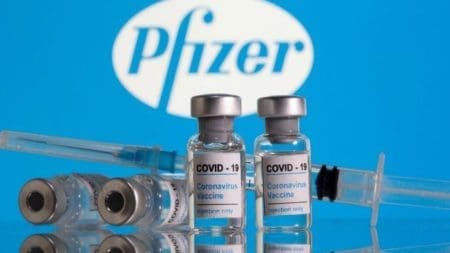After receiving the green light from the European Council on December 16, the European Union’s Commission has today announced that it has adopted new rules regarding the EU Vaccination Certificate, making the same valid for a period of 270 days.
The EU Commission notes that the uniform acceptance period for vaccination certificates will ensure that the Member States also coordinate travel measures amid COVID-19.
It also claims that the validity period has been based on available scientific evidence as well as objective criteria.
ALSO READ: 23,252 Deaths 2,189,537 Injured Following COVID Shots Reported in Europe
“COVID-19 vaccines – like all vaccines – prevent disease, not infection”
“This validity period takes into account the guidance of the European Centre for Disease Prevention and Control, according to which booster doses are recommended at the latest six months after the completion of the first vaccination cycle. The Certificate will remain valid for a grace period of an additional three months beyond those six months to ensure that national vaccination campaigns can adjust and citizens will have access to booster doses,” the Commission explains.
Data revealed by the Commission shows that to date, 807 million EU Digital COVID Certificates have been issued in the EU, while over 60 countries and territories across five continents have joined the system through which these certificates are checked and verified.
According to the Commission, with the new validity period of vaccination certificates, booster doses will be recorded in the certificates. Booster doses of two-dose vaccination series will be recorded as “3/3”, whereas booster doses of single-dose vaccinees will be recovered as “2/1”.
At the same time, those who recovered from COVID-19 and received the first dose of a two-dose vaccine will have it recorded as “2/1” in their certificates.
ALSO READ: Medical Professionals ‘Crucify’ COVID Vaccines in Public Commentaries
The certificates will not hold a validity date, but the mobile applications used to verify the EU Digital COVID Certificates will be adjusted in order to check and verify whether 270 days have passed from the last vaccination date or not.
“To allow for sufficient time for technical implementation of the acceptance period and for Member States’ booster vaccination campaigns, these new rules should apply from February 1, 2022,” the Commission notes.
Commenting on the decision to make vaccination certificates valid for only nine months after the last dose, the Commissioner for Justice Didier Reynders once again called the Digital COVID Certificate a success story, adding that the same should be adjusted to changing circumstances and new knowledge, in order to remain a “success story.”
“The acceptance period of nine months for vaccination certificates will give citizens and businesses the certainty they need when planning their travels with confidence. It’s now up to the Member States to ensure boosters will be rolled out swiftly to protect our health and ensure safe traveling,” the Commissioner said.
European Commission first unveiled its plans to make COVID-19 vaccination certificates valid for only nine months on November 25. Since then, several countries, including Austria and the Czech Republic, have already imposed such measures.
Now, the rest of the Member States who do not apply such rules on COVID-19 certificates yet are urged to vaccinate their citizens whose vaccination certificates approach the nine-month limit.
Data by the European Centre for Disease Prevention and Control (ECDC) show that Iceland is the EU/EEA country with the highest percentage of additional COVID-19 vaccine doses administered, as 50.2 per cent of its population have already been vaccinated with a booster dose. Austria comes second, with 39.8 per cent of its population having taken the additional COVID-19 vaccine dose.
ALSO READ: NUCLEAR BIOLOGICAL ENGINEER, FRED CORBIN, DROPS LEAKED PFIZER Vaccine Biowepon DOCS
Editor’s note: This post was originally published in November 2021 by Daily Mail and has been updated for comprehensiveness.














